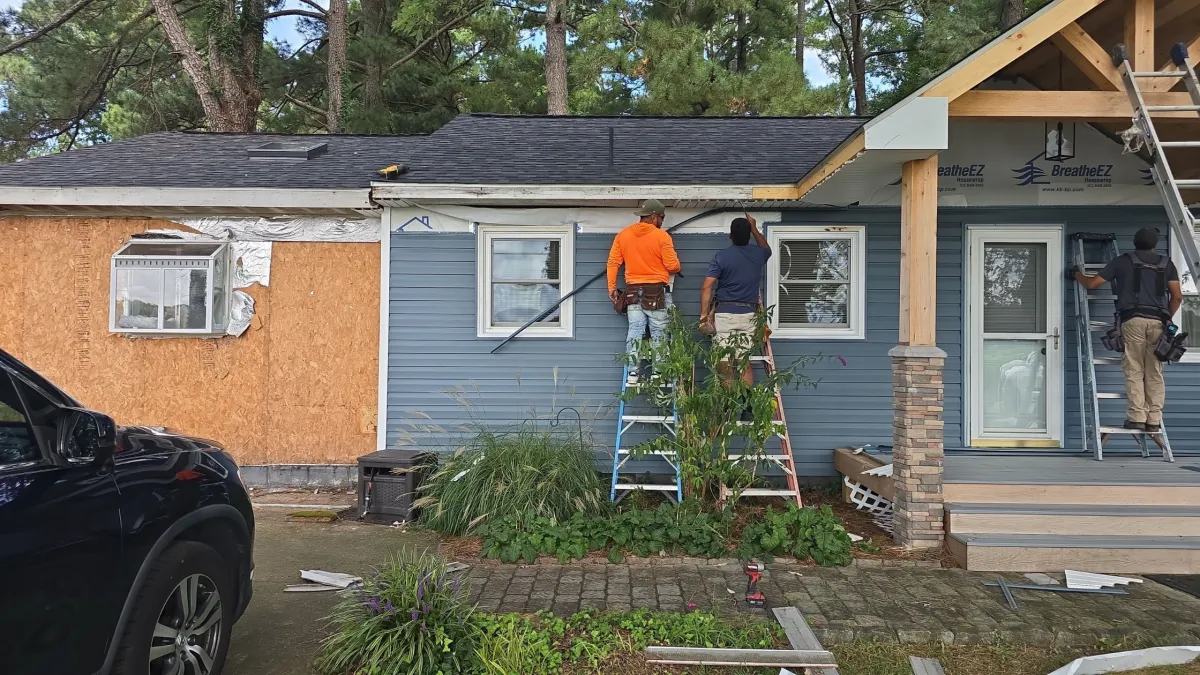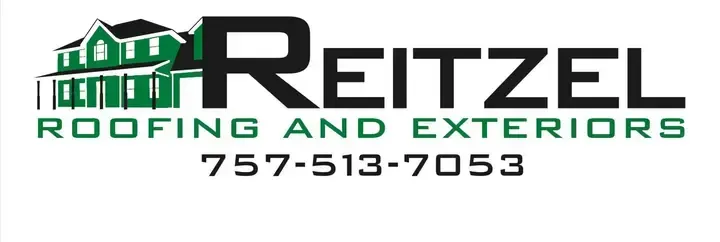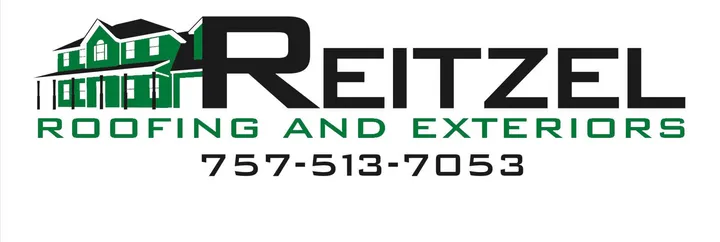LEARNING CENTER
CHECK OUT SOME OF OUR LATEST ARTICLES FROM IN OUR LEARNING CENTER

How to Choose the Right Siding for Coastal Homes: Expert Tips
Living in a coastal area comes with its unique set of challenges, particularly when it comes to maintaining and protecting your home. Coastal homes are regularly exposed to harsh weather conditions such as high winds, salt spray, and extreme temperatures. Choosing the right siding for coastal homes is crucial to ensure durability, aesthetics, and long-term performance. In this comprehensive guide, we’ll walk you through expert tips for selecting the best siding options for your coastal property, and explain why Reitzel Roofing & Exteriors is your ideal partner in this process.
1. Understanding Coastal Challenges
Coastal homes face environmental challenges that standard siding materials might not withstand. The primary factors to consider include:
Salt Spray and Corrosion
Salt from the sea can cause corrosion, particularly to metal siding materials. Over time, salt spray can lead to rust and degradation, reducing the lifespan of your siding and necessitating frequent repairs.
High Winds
Coastal areas often experience strong winds, especially during storms and hurricanes. Siding materials need to be capable of withstanding these high winds to prevent damage and maintain structural integrity.
Humidity and Moisture
High humidity and moisture levels can lead to issues such as mold, mildew, and rot. Siding must be resistant to moisture to avoid these problems and maintain the health of your home’s exterior.
Temperature Fluctuations
Coastal regions can experience significant temperature fluctuations. Siding materials should be able to handle these changes without warping, cracking, or becoming damaged.
2. Top Siding Options for Coastal Homes
When selecting siding for coastal homes, it’s important to choose materials that offer durability and resistance to the specific challenges of coastal environments. Here are some of the best siding options:
Fiber Cement Siding
Overview: Fiber cement siding is a popular choice for coastal homes due to its durability and resistance to moisture, insects, and fire.
Advantages:
- Durability: Fiber cement siding is highly durable and can withstand harsh coastal conditions. It resists cracking, warping, and damage from salt spray.
- Low Maintenance: It requires minimal maintenance and doesn’t need to be painted frequently.
- Versatility: Available in various styles and finishes, allowing for a range of aesthetic choices.
Disadvantages:
- Cost: It can be more expensive than other siding options.
- Installation: Requires professional installation to ensure optimal performance and longevity.
Vinyl Siding
Overview: Vinyl siding is a popular and cost-effective option that offers good performance in coastal environments.
Advantages:
- Affordability: Generally less expensive than fiber cement or wood siding.
- Low Maintenance: Resistant to moisture and doesn’t need to be painted.
- Variety: Comes in many colors and styles.
Disadvantages:
- Durability: Can be less durable in extreme conditions and may become brittle over time with prolonged exposure to UV rays.
- Aesthetic Limitations: May not offer the same level of aesthetic appeal as more traditional materials.
Engineered Wood Siding
Overview: Engineered wood siding combines the aesthetic appeal of natural wood with the durability of modern materials.
Advantages:
- Appearance: Provides the look of real wood with improved resistance to environmental damage.
- Durability: Resists moisture, insects, and rot better than traditional wood siding.
Disadvantages:
- Cost: Can be more expensive than vinyl siding.
- Maintenance: Requires periodic maintenance to ensure longevity.
Metal Siding
Overview: Metal siding, such as aluminum or steel, offers a sleek, modern look and excellent durability.
Advantages:
- Durability: Highly resistant to wind and salt spray. Aluminum siding is particularly resistant to rust.
- Low Maintenance: Requires little maintenance and can be easily cleaned.
Disadvantages:
- Cost: Can be more expensive than vinyl siding.
- Temperature Sensitivity: Metal siding can expand and contract with temperature changes, potentially causing issues if not properly installed.
3. Key Factors to Consider
When choosing siding for coastal homes, consider the following factors to ensure you make the best choice for your property:
1. Weather Resistance
Choose siding materials that can withstand the specific weather conditions of your coastal area. Look for materials that are resistant to salt, wind, and moisture.
2. Maintenance Requirements
Different siding materials have different maintenance needs. Consider how much time and effort you’re willing to invest in maintaining your siding. Fiber cement and metal siding generally require less maintenance than wood or vinyl.
3. Aesthetic Appeal
The exterior of your home contributes to its overall curb appeal. Choose a siding material that complements your home’s design and architecture while also standing up to coastal conditions.
4. Installation Process
Proper installation is crucial for the performance of your siding. Make sure to hire a qualified contractor who has experience with coastal installations to ensure the job is done correctly.
5. Cost and Budget
Consider both the initial cost of the siding material and the long-term costs associated with maintenance and repairs. Factor these into your budget to make an informed decision.
4. Maintenance Tips for Coastal Siding
Regardless of the siding material you choose, proper maintenance is essential to ensure its longevity and performance. Here are some maintenance tips for coastal siding:
1. Regular Cleaning
Keep your siding clean to prevent the buildup of salt, dirt, and algae. Use a soft brush or a low-pressure washer to clean your siding regularly.
2. Inspect for Damage
Regularly inspect your siding for signs of damage, such as cracks, dents, or peeling. Address any issues promptly to prevent further damage and maintain the integrity of your home.
3. Address Moisture Issues
Ensure proper drainage around your home to prevent moisture buildup. Check for and repair any leaks in your roof or gutters that could lead to water damage.
4. Repainting and Sealing
For siding materials that require painting or sealing, such as wood or fiber cement, follow the manufacturer’s recommendations for reapplication to maintain protection against the elements.
5. Why Choose Reitzel Roofing & Exteriors
At Reitzel Roofing & Exteriors, we understand the unique challenges that coastal homes face and are committed to providing top-notch siding solutions tailored to your specific needs. Here’s why you should choose us for your siding project:
Expert Knowledge
Our team has extensive experience working with coastal homes and understands the importance of selecting the right siding materials for optimal performance and durability.
Quality Products
We offer a wide range of high-quality siding options, including fiber cement, vinyl, engineered wood, and metal siding, to ensure that you find the perfect match for your home.
Professional Installation
Our skilled professionals are trained to handle the unique requirements of coastal installations, ensuring that your siding is installed correctly and performs at its best.
Customer Satisfaction
We pride ourselves on delivering exceptional customer service and ensuring that our clients are completely satisfied with their siding projects. We work closely with you to understand your needs and preferences, providing personalized solutions and expert guidance throughout the process.
Local Expertise
As a locally owned and operated business in Virginia Beach, VA, we have a deep understanding of the coastal environment and the specific challenges it presents. Our local expertise ensures that we provide solutions that are perfectly suited to the conditions of your area.
Choosing the right siding for coastal homes involves careful consideration of various factors, including durability, weather resistance, and maintenance requirements. By understanding the unique challenges of coastal environments and selecting the most suitable siding material, you can ensure that your home remains protected and aesthetically pleasing for years to come.
At Reitzel Roofing & Exteriors, we are dedicated to helping you find and install the perfect siding solution for your coastal home. With our expert knowledge, quality products, and professional installation services, you can trust us to deliver outstanding results. Contact us today to discuss your siding needs and discover how we can help enhance the beauty and durability of your coastal property.

Our Services
Roof Repairs
Roof Leaks
Roof Storm Damage
Roof Replacement
Residential Roofing
Commercial Roofing
Siding
Trim
Windows
Fencing
Decks
Resources
Learning Center
Financing
Areas We Service
About Us
Contact Us
Privacy Policy
Copyright © 2022 Reitzel Roofing and Exteriors
All Rights Reserved
Our Services
Resources










